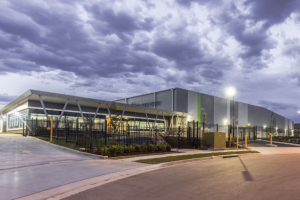Fracking setback for Cuadrilla

CUADRILLA has withdrawn applications for radioactive waste permits that would allow it to frack at sites in Lancashire, according to an investigation by the BBC.
The Inside Out North West programme has been told by the company that, following recent changes in the Environment Agency’s guidance on permits and an ongoing review of its exploration programme, it had decided to “withdraw the previous permit applications for our sites in Lancashire”.
Without these permits the company cannot hydraulically fracture – or frack – the shale bed, but it can continue to drill.
Cuadrilla told the programme, which is broadcast tonight: “We are preparing new permits and will provide further detail when we announce a number of proposed new exploration sites. We will need a radioactive substances permit to flow test any well after fracturing.”
But according to an expert the Environment Agency will not grant the special licenses until it is satisfied a disposal route is available for the by-product of fracking – radioactive wastewater. Radiation waste advisor, Dr Trevor Jones, told Inside Out that significant investment is likely to be needed before that happens – meaning plans for fracking across the UK could be delayed.
He said: “This means that significant investment will be required because suitable treatment technologies are not available off the shelf and that will, inevitably delay fracking operations.”
Fracking involves pumping large amounts of water, mixed with chemicals, underground at high pressure. When this water is pumped into the ground a significant amount is lost and between 10% and 70% returns to the surface as “flowback”. This can also contain natually occuring radioactive brine. Last year the Government body Public Health England said its disposal may present “potential health risks due to the chemical constituents”.
Its report into fracking said: “Flowback water can be treated, recycled or stored. Some operators in the US have stored flowback water on site in man-made ponds or open pits, but stored water may evaporate which can increase the concentration of dissolved substances and so further increase the potential public health risks associated with storage on site. However, the UK regulatory approach is not expected to permit this practice.”
Caudrilla believes it can overcome the issue of disposing of radioactive water and told the BBC it has run successful trials, but these have yet to be proved full-scale.
Last month Cuadrilla said it was closing its Preese Hall drilling site. Flowback water from Preese Hall was analysed by the Environment Agency which found “high levels” of sodium, chloride, bromide and iron, as well as elevated values of lead, magnesium, zinc chromium and arsenic compared with the local mains water. Cuadrilla has also conducted tests at Grange Hill, Singleton and Becconsall, near Banks, and was planning to seek permission to drill at a number of other, undisclosed, sites.
Inside Out also investigates why almost two million gallons of radioactive water – produced by Cuadrilla – was processed at a water treatment works and then discharged – legally – into the Manchester Ship Canal. The company was authorised by the Environment Agency to send contaminated water to a sewage works before it was discharged into the Manchester Ship Canal three years ago.
It happened before regulatory changes came into play, which mean that this would no longer be possible, but the programme examines if there are any potential health risks following warnings from America that radioactive wastewater cannot be treated effectively and high concentrations can impair the ability of treatment facilities to properly treat domestic sewage.
Marine expert Paul Rose, who presents the programme, said: “Fracking may or may not become a boom industry. The operators will only know what’s down there by drilling many more exploratory wells. And if the gas is viable to extract they’ll be producing lots and lots of flowback water contaminated with radiation. The only certainty we have now is that no-one – yet – can guarantee how those sorts of volumes are going to be cleaned.”
Inside Out is broadcast tonight on BBC1 at 7.30pm.








